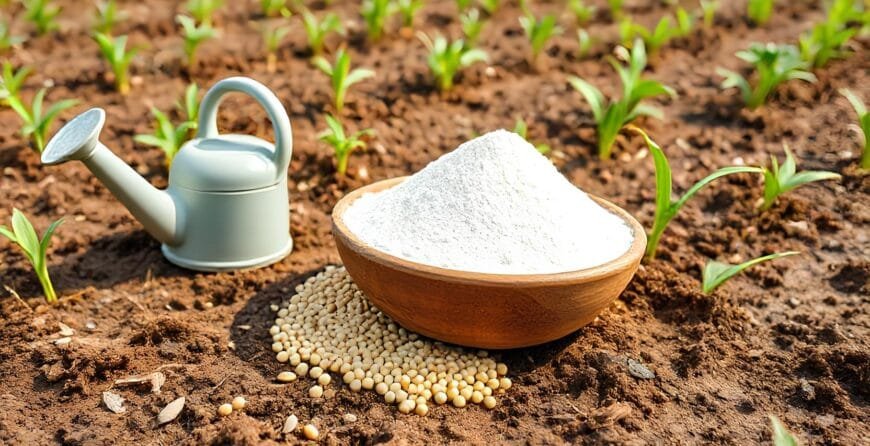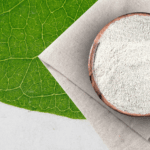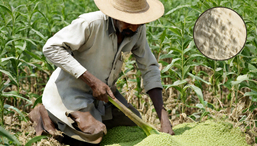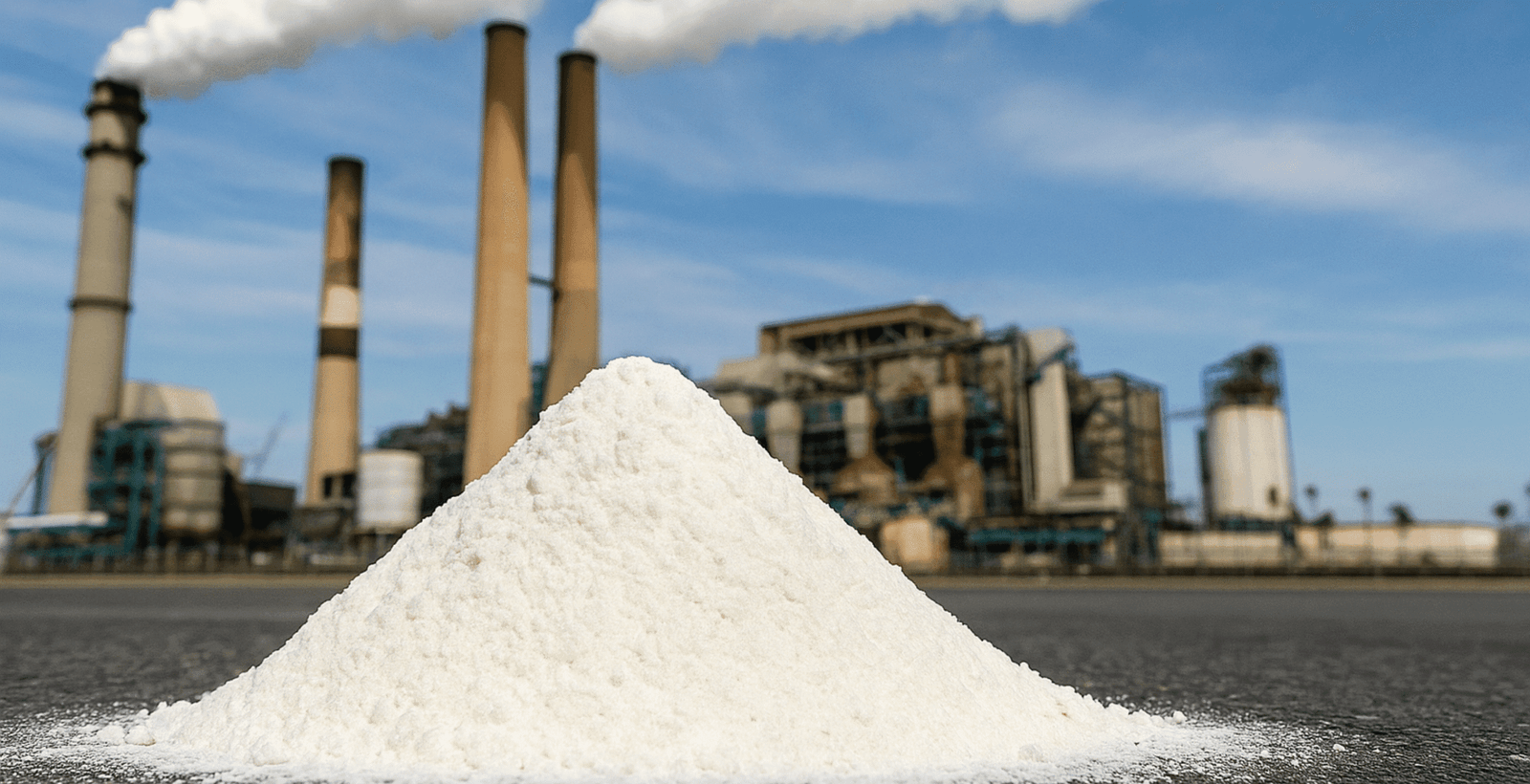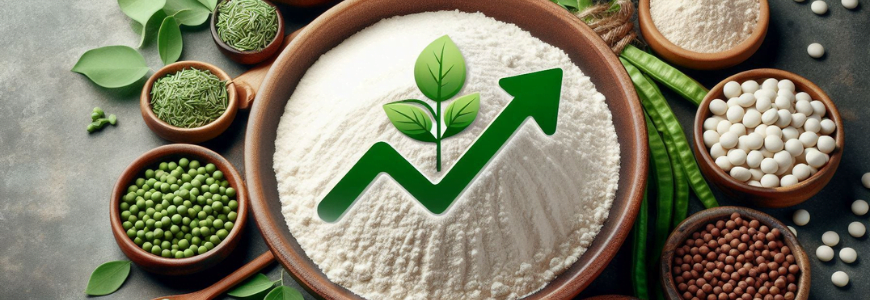Agriculture plays a vital role in feeding the world, and healthy soil is the foundation of successful farming. Farmers are always looking for natural ways to improve soil quality and increase crop yield. One such natural solution is Guar Gum in Agriculture. This powerful plant-based substance has many benefits, especially as a soil conditioner. And with soil degradation becoming a major concern, sustainable solutions like guar gum additive are essential to maintaining long-term soil health and ensuring food security.
What is Guar Gum?
Guar gum is a natural polymer derived from guar beans (Cyamopsis tetragonoloba). It is widely used in industries such as food, pharmaceuticals, and cosmetics. However, its applications in farming are also gaining attention. Guar Gum in Agriculture helps improve soil structure, retain moisture, and enhance plant growth. Guar plants are mainly grown in arid and semi-arid regions, particularly in India and Pakistan. The beans from this plant are processed to extract guar gum, which has multiple industrial and agricultural benefits.
Benefits of Using Guar Gum in Soil:
1. Enhances Water Retention:
Guar gum forms a gel-like structure when mixed with water, helping soil retain moisture for longer periods. This is especially useful in dry regions where water conservation is essential. Proper moisture levels improve seed germination and plant growth.
2. Prevents Soil Erosion:
By binding soil particles, Guar Gum in Agriculture reduces erosion caused by wind and water. This protects farmland from losing valuable topsoil, which contains essential nutrients for plants. Erosion control also helps in maintaining land productivity over time.
3. Improves Soil Aeration:
Loose and well-aerated soil allows roots to grow deeper and absorb more nutrients. Guar Gum in Agriculture prevents soil compaction, ensuring better root development. Proper aeration enhances soil microbial activity, which contributes to nutrient availability.
4. Boosts Soil Fertility:
It enhances microbial activity in the soil, leading to better nutrient availability for plants. Healthier soil means healthier crops. Microbes help break down organic matter and release essential nutrients like nitrogen, phosphorus, and potassium.
5. Eco-Friendly and Biodegradable:
Unlike synthetic chemicals, Guar Gum in Agriculture is natural and breaks down over time without harming the environment. It does not leave harmful residues in the soil, making it a preferred choice for organic farming.
6. Increases Crop Yield:
The ability of Guar Gum in Agriculture to improve soil health leads to higher crop production. With better water retention, aeration, and nutrient availability, plants grow healthier and produce more yield per acre.
How to Use Guar Gum in Farming?
Farmers can use guar gum in several ways to improve soil health:
1. Mixing with Soil:
Guar gum powder can be mixed with soil before planting. This helps in improving soil structure and water retention. Farmers can apply it to dry or sandy soils to enhance water absorption and prevent leaching.
2. Watering with Guar Gum Solution:
Dissolving guar gum in water and applying it to fields ensures better water absorption by the soil. This method is particularly effective in arid regions where irrigation is limited.
3. Combining with Organic Fertilizers:
When used with compost or manure, Guar Gum in Agriculture enhances the overall fertility of the soil. This combination provides a balanced nutrient supply to plants and improves soil structure.
4. Using in Mulching Practices:
Guar gum can be applied to mulch (soil protection) layers to reduce water evaporation and maintain soil moisture levels. This is highly effective in reducing irrigation frequency and conserving water.
The Role of Guar Gum in Sustainable Farming:
Sustainability is a key concern in modern agriculture. Farmers are shifting towards eco-friendly practices to maintain soil health for future generations. Guar Gum in Agriculture is an excellent natural alternative to chemical soil conditioners, promoting long-term soil fertility.
Comparison with Chemical Soil Conditioners:
| Feature | Guar Gum | Chemical Conditioners |
|---|---|---|
| Eco-Friendly | Yes | No |
| Improves Water Retention | Yes | Limited |
| Biodegradable | Yes | No |
| Boosts Microbial Activity | Yes | No |
| Cost-Effective | Yes | Expensive |
Many farmers rely on synthetic soil conditioners, which often contain harmful chemicals that degrade soil quality over time. Guar Gum in Agriculture offers a sustainable alternative that improves soil health without causing long-term damage.
Industries and Crop Types That Benefit from Guar Gum:
Guar Gum is not just useful for farmers—it also supports a wide range of agricultural industries and crop types, making it a versatile ingredient in modern farming practices.
Industries That Use Guar Gum in Agriculture:
1. Seed Processing Units: Use Guar Gum for coating seeds to improve germination and protect against pests.
2. Fertilizer & Pesticide Manufacturers: Add Guar Gum to create uniform sprays and suspensions.
3. Organic Farming Companies: Prefer Guar Gum as a natural and safe alternative to synthetic binders.
4. Soil Health & Irrigation Product Makers: Use it in soil conditioners and moisture-retaining products.
5. Hydrogel & Biopolymer Brands: Employ Guar Gum in their eco-friendly water-retention solutions.
Crop Types That Benefit from Guar Gum:
1. Cereals (Wheat, Rice, Maize): Helps retain moisture and enhances nutrient delivery.
2. Vegetables (Tomatoes, Onions, Leafy Greens): Improves water retention and root support.
3. Horticultural Crops (Fruits, Flowers): Guar Gum improves soil texture, supports delicate roots.
4. Pulses & Oilseeds (Soybean, Mustard): Boosts soil fertility and crop resilience in dry areas.
5. Dryland Crops (Millets, Sorghum): Helps maintain moisture and reduces stress in arid climates.
Case Studies / Real-World Applications:
1. Use in Arid and Semi-Arid Regions:
Farmers in Rajasthan (India) and parts of Africa have adopted Guar Gum as a soil conditioner to combat dry and degraded soils. In areas with limited rainfall, its ability to retain moisture and reduce water runoff has helped crops like millet, groundnut, and wheat survive dry spells and improve yield.
2. Research Backing:
Agricultural institutes such as the Central Arid Zone Research Institute (CAZRI) have conducted trials showing that Guar Gum-treated plots retained up to 25–30% more moisture compared to untreated plots. Root development and plant height also showed noticeable improvement, especially in sandy soils.
3. Visual Impact (Before vs. After):
In test plots, the difference is visually significant:
Before: Cracked, dry soil with uneven crop growth.
After: Moist, well-bound soil with more uniform and healthier plants.
Yield improvements of 15–20% were reported in crops like pulses and maize when Guar Gum was used alongside regular fertilization.
Challenges and Considerations while using Guar Gum in Agriculture:
1. Availability and Supply: Agricultural-grade Guar Gum may be limited due to higher demand from other industries. Reliable sourcing is essential, especially during peak seasons.
2. Storage and Handling: Guar Gum absorbs moisture easily and must be stored in dry, airtight containers to prevent clumping or spoilage.
3. Cost vs. Benefit: Initial costs can be high, but long-term benefits like improved yields and water savings justify the investment. Small trials can help assess ROI.
4. Soil Compatibility: While effective for most soils, results may vary. Heavily clay or saline soils may require additional amendments before use.
Future of Guar Gum in Agriculture:
With climate change and soil degradation becoming major challenges, the use of Guar Gum in Agriculture is expected to grow. More farmers are realizing its benefits in improving soil health and crop yield naturally. Governments and agricultural researchers are also promoting organic and sustainable farming methods that include natural soil conditioners.
As demand for organic food and sustainable farming grows, Guar Gum in Agriculture will play an even bigger role in soil management. Research is also being conducted to explore new ways to use guar gum for improving soil fertility and preventing desertification in arid regions.
Conclusion:
Healthy soil is essential for productive farming, and Guar Gum in Agriculture is a natural way to enhance soil quality. Its ability to retain moisture, prevent erosion, and improve fertility makes it an ideal soil conditioner. By adopting guar gum-based solutions, farmers can promote sustainable agriculture while increasing their crop yield.
With more awareness and research, the use of Guar Gum in Agriculture will continue to rise, helping farmers around the world maintain soil health and improve food production.
FAQs:
1. What is the purpose of using Guar Gum in agriculture?
Guar Gum in agriculture improves soil structure, water retention, and root development.
2. How does Guar Gum act as a soil conditioner?
Guar Gum in agriculture binds soil particles, enhancing aeration and moisture absorption.
3. Is Guar Gum in agriculture safe for the environment?
Yes, Guar Gum is biodegradable and environmentally friendly.
4. Can Guar Gum improve crop yield?
Yes, Guar Gum in agriculture promotes healthier soil, leading to better crop growth and yield.
5. How is Guar Gum applied in agricultural fields?
Guar Gum is typically mixed with water and sprayed or applied during soil preparation.
6. Is Guar Gum in agriculture safe for the environment?
Yes, Guar Gum is biodegradable and environmentally friendly.
7. Does Guar Gum work in all soil types?
Guar Gum is effective in sandy, loamy, and degraded soils.
8. What crops benefit most from Guar Gum in agriculture?
Crops like wheat, rice, vegetables, and fruits respond well to Guar Gum in agriculture.
9. Can Guar Gum be used in organic farming?
Yes, Guar Gum in agriculture is natural and suitable for organic cultivation.
10. Where can I purchase Guar Gum for agricultural use?
Guar Gum for agriculture is available through agrochemical suppliers such as Durga Enterprises and online agricultural platforms.

